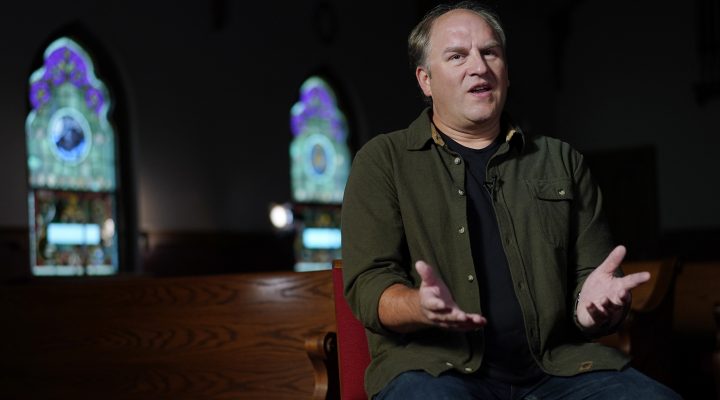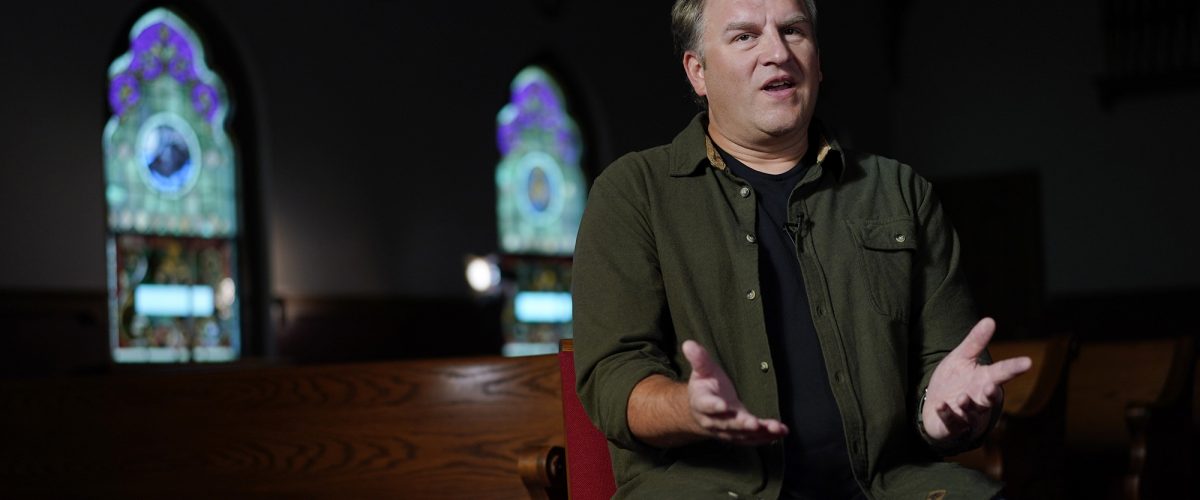It appears the United States Supreme Court could look for common ground in ruling on a major religious liberty case heard by the high court last week, according to two Baptist authorities on the subject.

Amanda Tyler
Amanda Tyler, executive director of Baptist Joint Committee for Religious Liberty, and Holly Hollman, general counsel for BJC, dissected the oral arguments in Groff v. DeJoy in their weekly podcast called “Respecting Religion.” They joined other court observers in expressing hope the court might seek a middle ground that more clearly defines but does not abandon the current standard by which employers must accommodate the religious practices of employees.
That standard was set in a 1977 case called Trans World Airlines v. Hardison, which said employers may ignore employee requests for religious accommodation if granting the request “reasonably” would create an “undue hardship” on the employer. An “undue hardship” has been understood to be anything that would require more than a trivial or minimal cost — ensconced in the legal word “de minimis.”
In the case at hand, Gerald Groff was a part-time employee of the U.S. Postal Service working weekends only, who refused to work on Sunday because he observes that as his sabbath. At first, the postal service attempted to accommodate him, but in time it became more difficult because his absence placed a hardship on other employees.
Groff has asked the justices to overturn Trans World Airlines v. Hardison. But Tyler, Hollman and other observers said the line of questioning that evolved during oral arguments April 18 indicates the justices could take an intermediate step instead.
“It’s likely that we see a decision that clarifies the standard for undue hardship but that stops short of overturning Hardison.”
“It’s likely that we see a decision that clarifies the standard for undue hardship but that stops short of overturning Hardison,” Tyler said in the BJC podcast.
That sentiment was shared in an analysis piece written for SCOTUS Blog by Amy Howe headlined: “Justices Look for Common Ground in Postal Worker’s Religious Liberty Case.”
Howe wrote: “Even some of the court’s conservative justices appeared inclined to strike a compromise, leaving Hardison in place, while at the same time making clear that a trivial burden is not enough to justify failing to accommodate an employee’s religious beliefs.”
The accommodation standard is rooted in Title VII of the federal Civil Rights Act, which bars discrimination against employees based on their religion.

Holly Hollman
In addition to asking whether the court should disapprove the “more than de minimis cost standard” for refusing title 7 religious accommodations, the case also asks “whether an employer may demonstrate an undue hardship on the conduct of the employer’s business under Title VII merely by showing that the requested accommodation burdens the employees’ coworkers rather than the business itself,” Hollman explained.
Groff’s attorney, Aaron Streett, told justices there is “no reason” employees should receive less protection for religious practices than workers covered by other federal civil rights laws. A better standard, he suggested, is to deny accommodations only when doing so would require “significant difficulty and expense.”
One of the legal peculiarities of this case is that other federal employment law has changed since 1977, and Groff argues the modern standard is different than what the court intended in 1977.
Also at blame from some quarters in this conundrum is the U.S. Congress, which has declined to clarify its intent.
Justice Elena Kagan said Congress can change the law but hasn’t. It is not the court’s role to rewrite the law, she added: “You can count on a finger how many times we have overruled a statutory decision.”
Justice Ketanji Brown Jackson also suggested there may be good reasons why the court shouldn’t overturn Hardison. Hardison, she observed, “has been on Congress’s radar screen for a very long time, and they’ve never changed it. And I guess I’m concerned that … a person could fail to get what they want in Congress, what they want with respect to changing the statutory standard, and then just come to the court and say, you give it to us.”
Justice Brett Kavanaugh cited a footnote in the Hardison ruling that said the employer in that case had done all it could do without incurring “substantial costs.” That standard, he said, seems “perfectly appropriate.”
Justice Neil Gorsuch said he hopes to find “common ground” between Groff and the postal service. Both sides agree that “de minimis can’t be the test … because Congress doesn’t pass civil rights legislation to have de minimis effect,” he said. So why couldn’t the high court make clear the “de minimis” test is incorrect “and be done with it and be silent as to the rest of it?”
“There are many reasons Congress might not act on any given piece of legislation, and we don’t have any indication that Congress has explicitly agreed with the standard put forward in Hardison,” Tyler said in the podcast.
“And putting that aside, I don’t think that would keep this court from reviewing this if they wanted to do so,” Hollman added.
Some justices also worried about the effect a change might have on previous cases decided under Hardison.
Chief Justice John Roberts said: “If we’re going to do this and say ‘de minimis’ doesn’t really mean de minimis, it means something more significant,” then lower courts will have to take that into account.
BJC joined a brief in this case on the side of Groff. That brief with other religious liberty groups, including the Southern Baptist Convention’s Ethics and Religious Liberty Commission, focused specifically on the need to revisit TWA v. Hardison “because that case made it too easy for an employer to claim an undue hardship and deny an accommodation,” Hollman explained.
The BJC brief argues a better definition of “undue hardship” would take into account whether providing the accommodation would involve significant difficulty or expense.
Related articles:
Broad coalition of religious liberty groups sides with former postal employee


